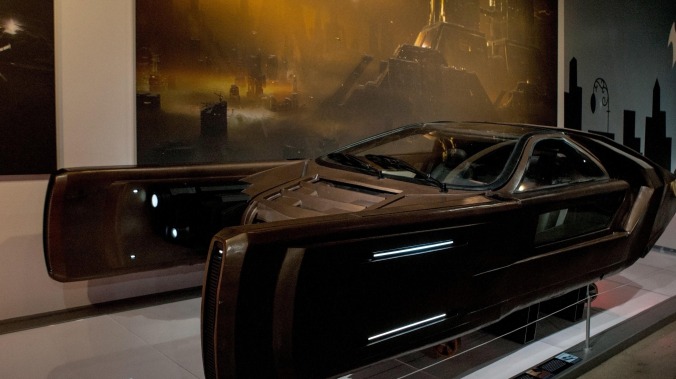Introducing Endless Mode: A New Games & Anime Site from Paste
A Spinner from Blade Runner 2049 Photo: Paul Butterfield/Getty Images
Ridley Scott’s original Blade Runner is about blue-collar workers pushing back against a corporate structure that dehumanizes them and literally lets them die when they’ve outlived their usefulness, so, naturally, Amazon has jumped at the chance to be associated with such a… believable future. According to Variety, the mega-corp’s Prime Video branch has officially picked up the Blade Runner sequel series that it first started circling earlier this year, with Silka Luisa (a writer on Shining Girls and Halo) serving as showrunner and Blade Runner 2049 co-writer Michael Green being one of the executive producers (Scott, through his Scott Free Productions label, is also executive producing).
Titled Blade Runner 2099, pretty much all we know about the series is that it takes place in the year 2099, which is 50 years after Denis Villeneuve’s Blade Runner 2049. That’s a sizable time-jump, and it means that it’s unlikely most of our old Blade Runner friends will be alive enough to stop by—Ryan Gosling’s K seemed pretty dead at the end of that movie, Rick Deckard will be very old (and may have been, ahem, “retired” by this point), and Edward James Olmos’ Gaff is a human and would easily be well over 100 years old at that point. Then again, Carla Juri’s Ana from 2049, the miracle replicant baby, would only be 78. She could easily show up.
That brings up some big questions about the Blade Runner universe that 2099 is going to have to address: Did the revelation that replicants can have children completely upend the dynamic between humans and their disposable robo-workers? Or is this going to be like the Star Wars sequels where we find out that nothing anyone does matters and society will never change, even when you win a star war? It’s not like things were much better for replicants in 2049 versus the original movie (there are some in-universe reasons for that, we know, we watch anime), but this is 80 years after the original Blade Runner. If cops are still running through a perpetually rainy Los Angeles with their trench coats and flying cars, executing replicants who are guilty of wanting to be alive, then somebody really fucked up somewhere.
(Then again, it would be enormously funny if this Amazon-produced Blade Runner show was about how things aren’t so bad for the replicants and how it’s actually good that they’re passing out from heat exhaustion just so people don’t have to wait five extra seconds to get their Prime deliveries. The bad guys are union reps trying to organize the replicant-staffed spaceship factories or whatever.)
